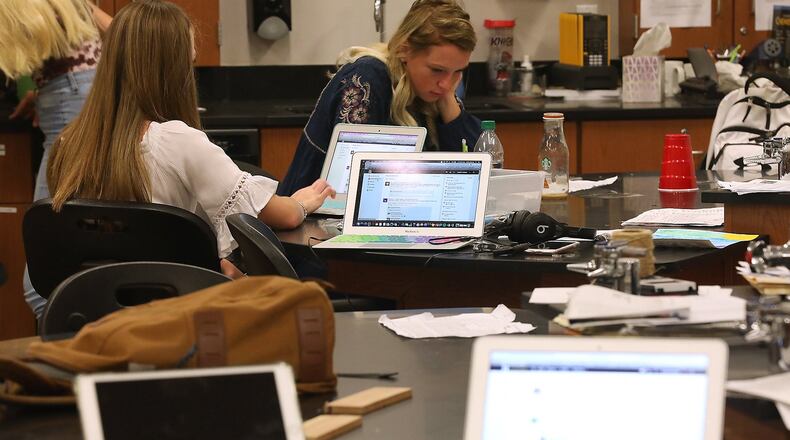Spokeswoman Mandy Minick said Monday evening that the Ohio Department of Education had just received the federal letter, so no formal decisions on how to proceed had been made at the state level.
Ohio legislators and education officials have already had discussions about waiving any potential consequences for students and schools tied to test performance. There is likely strong support for that idea.
There has been more disagreement over whether to give the tests at all. State Senate President Matt Huffman has argued that the tests themselves should still take place to measure student progress during a tumultuous year. Republicans in the House have introduced a bill in favor of canceling the tests, saying schools need to concentrate on teaching material rather than testing.
The USDOE guidance recognized that schools “may wish to prioritize learning time during the scant in-person schooling time this year.”
Most of Ohio’s public school students take state reading and math tests each spring from third to eighth grade, science tests in fifth and eighth grade, and seven end-of-course exams at various times across their high school years. Of those 21 tests, 17 are federally mandated.
State tests were canceled in spring 2020, as Gov. Mike DeWine shuttered school buildings in mid-March and the federal government issued waivers as the coronavirus pandemic took hold.
In 2020-21, some students have been physically attending school five days a week all year, while others have been learning from their homes for 11 months straight, and a third group has been doing a “hybrid” mix of in-person and online learning.
Preliminary results from two state tests that were administered in the fall (kindergarten readiness and third-grade reading) showed that overall scores were “notably lower than past years,” especially for Black and low-income students, and for those students who had not yet returned to in-person classes.
“The Department of Education is committed to supporting all states in assessing student learning during the pandemic to help target resources and support to the students with the greatest needs,” said Ian Rosenblum, acting U.S. assistant secretary for elementary and secondary education. “We also recognize that at a time when everything in our education system is different, there needs to be (flexibility).”
USDOE said it recognizes individual states may have special circumstances, so it is “prepared to work with states to address their individual needs and conditions while ensuring the maximum available statewide data to inform the targeting of resources and support.” The federal announcement said state and local report card requirements will remain in place, but without ratings normally tied to test results.
Some education groups have said state tests should be canceled, because schools can use their regular diagnostic tests to more quickly and efficiently learn where students stand and what help they need.
The federal testing news, announced just after 6 p.m. Monday, was a bit of a surprise. State superintendent Paolo DeMaria, asked by the Dayton Daily News about any testing developments just after 4 p.m., said there was nothing new as of that moment and that Ohio was “captive to the feds. We will wait to hear word from them.”
About the Author

